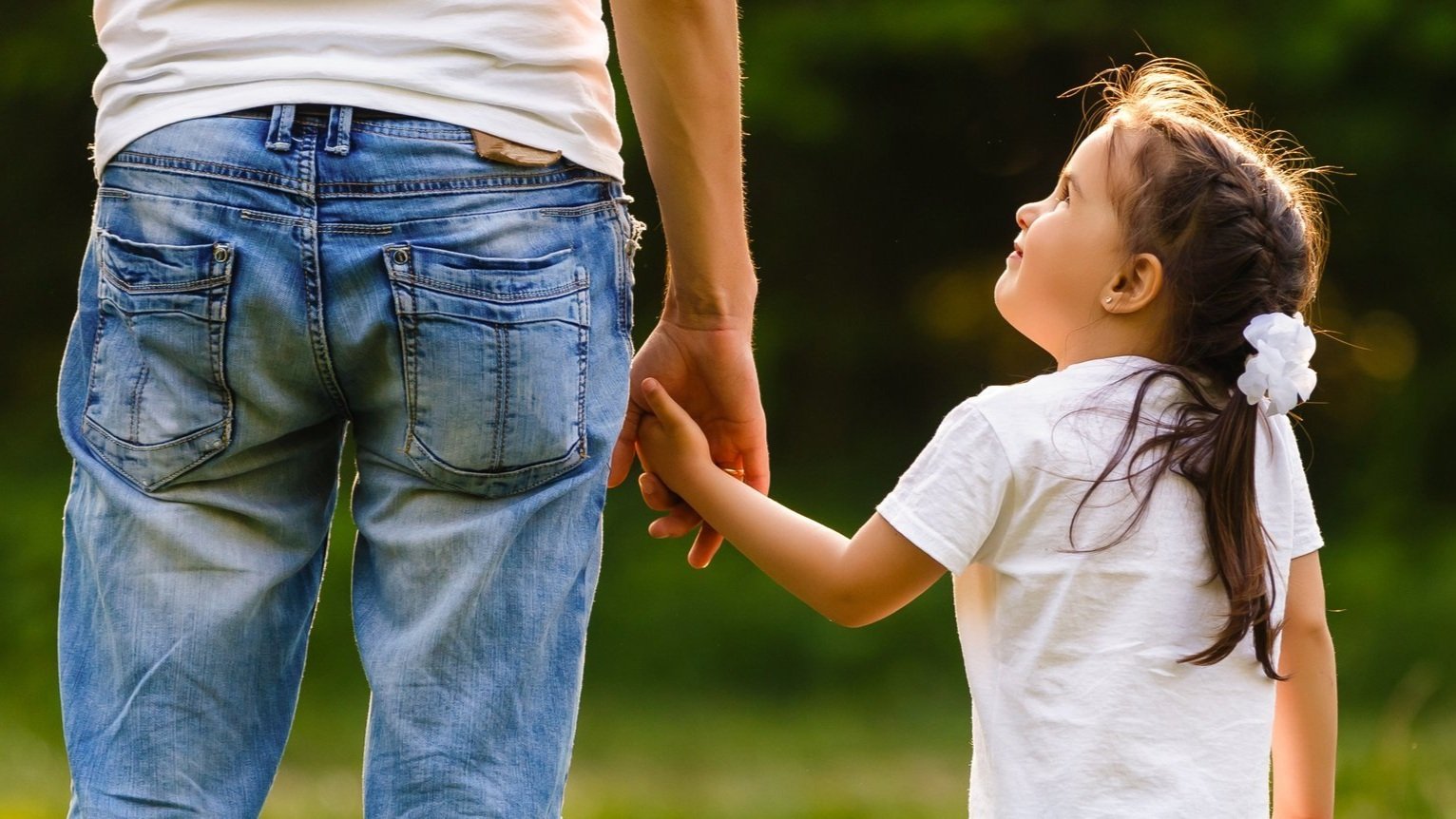
Blog ❯ The Importance of Preventative Mental Healthcare for Kids
The Importance of Preventative Mental Healthcare for Kids
Preventative mental healthcare for kids is extremely important. Noticing the signs when kids start to feel unwell is vital, because managing mental wellness is a lot less difficult than managing mental illness. It’s essential in 2022 that we normalize mental health struggles, eradicate stigma, and treat these issues the same way physical health issues are treated. We need more family support services and free mental health resources, and Kidzsmart can contribute to this with our edutainment content for kids.
Denise Waligora is a Training and Delivery Specialist for Mental Health First Aid at Mental Health Commission of Canada
Imagine a child struggling with their mental well-being. They reach out to a trusted adult and the reply is “You’re 13, what do you have to be depressed about?”. Studies show that 50% of mental health problems begin by age 14; children don’t suddenly develop mental health problems, and there are usually signs along the way that indicate a decline in a child’s mental well-being.
How many readers have school-aged children or adolescents in their life? Would you be able to identify if they were struggling with their mental well-being? Part of the challenge in being able to identify signs of a decline lies in the fact that children continually go through changes as they develop.
Are children moody at times? I can imagine countless parents shouting “Yes!” loudly from the back of the room. One of the questions we can ask ourselves is “Is this a change for this child?”; remember, there’s always reason for change in behaviour. If we choose to ignore the change or brush it off, over time the changes can become more severe and cause disruption in the child’s life.
Now, you may be thinking to yourself “But I’m not a doctor, how am I supposed to know what’s happening?”. It’s not our ability to diagnose but to recognize changes, reach out, and connect with children. We could see changes across a spectrum, from changes in mood, thinking, performance, even physical and addictive behaviours. You may see some of the following changes: persistent sadness (more than two weeks), withdrawal, difficulty sleeping, irritability or difficulty in school. Children don’t always have the words to explain how they’re feeling. Instead of saying they’re anxious, they may complain of an upset stomach or headache instead.
Another change that we can “hear” is negative attitude; this of course requires us to listen to what the child is saying. We may hear comments like “It doesn’t matter anymore”, “It’s always going to be this way” or “My life will never get better”. When we hear these comments, it’s important to reach out instead of ignoring or being afraid of a difficult though necessary conversation.
How we start the conversation can determine how it goes or how quickly it ends. A few points to be mindful of, always start with “I”; there’s a marked difference between “I’ve noticed you’ve been having a hard time waking up” compared to “Why are you so lazy and not getting up for school?”. We want to start the conversation with what has prompted us to reach out or cause us concern. We also want to be genuine and stay away from comparisons. Telling a child that they have it so much easier than we did will not validate their experiences or feelings; our focus is to build trust and rapport. Another key point, try a different setting; go for a drive and get ice cream or do a timed activity that doesn’t require a lot of eye contact.
In an ideal word, the first time we check in with a child they would be open and tell us everything, though we know this is not often the case. Remember, there are several reasons a child may not want to talk. For example, they may not even recognize they’re having difficulties until they experience a crisis. That’s why it’s so important to share what changes you’ve noticed in a caring and empathetic manner. Let them know you’re there when/if they want to talk and if there’s someone else that they prefer to talk with, encourage them to reach out to them.
People are afraid of what they don’t know or understand; but we don’t have to be experts in mental health to be a support to a child who’s struggling with their mental well-being. Two of the greatest gifts we can give a child is our time and our ability to listen. Please take the time to provide a safe space for the children in your life who need a trusted adult.
Denise Waligora has a Bachelor of Science Degree and has worked in the mental health field for over 20 years. Prior to joining the Mental Health Commission of Canada as a Training and Delivery Specialist for Mental Health First Aid in 2011, Denise worked as a psychiatric nurse, Residential Program Director, IBI Therapist at CHEO, crisis worker and case manager in a justice program. Denise has been facilitating Mental Health First Aid since 2008.
Robin Simpson is a Child and Youth Care Practitioner with IWK Health
The thoughts concerning our health are usually physical. We indicate our well-being by determining how we feel physically. When our head hurts, we associate it with a headache. A runny nose? Must be a cold! However, how many of us remember that aspects of our health include mental health? The World Health Organization (WHO) states that there is no health without mental health.
Today, more than ever, our children are learning the importance of being healthy and staying active.
An apple a day keeps the doctor away! Whether it’s physical education at school, commercials on television or YouTube and marketing on popular food items consumed by children, the message is clear – your health is important. But how much of the conversation regarding children’s health includes education and awareness on their mental health and wellness? What exactly is mental health?
Mental health is a term used to describe our mental well-being; including our emotions, feelings, and thoughts, how we connect socially, perceptions and the ability to problem solve. When these areas are affected, it impacts our physical health. Multiple studies are providing that when there is a deterioration in our mental health it affects the body physically, leading to risk factors for physical conditions.
For example, eight-year-old Taylor is told that they will have to learn at home for two weeks due to an outbreak at their school. Taylor is frustrated and angry but doesn’t express that they feel this way because they can’t connect with their friends in person. Over the next fourteen days their feelings of frustration and anger display as low mood. They lack the motivation to complete day to day tasks, and most of their time is spent laying down watching tv or playing video games. As a result, blood circulation (key for maintaining optimal health) throughout Taylor's body develops constraints. By the time they begin school, the activities they did previously in their physical education class have become more difficult. Taylor doesn’t know that their mental health has affected their physical health, or know why this is connected. So, what are some preventative measures that we can take to promote the overall mental well-being of children, and prevent the worsening of mental health?
Education is Key. Providing education to children on thoughts, feelings and emotions will help children and the individuals in their lives to label and recognize the state of their mental well-being. One way that educators are doing this in their classroom is through an approach called Zones of Regulation, a social-emotional learning curriculum that teaches children to build awareness of their feelings. Their usage of colors is a huge component that assists in identifying feelings and emotions.
Accessing books such as The Way I Feel by Janan Cain and movies like Inside Out are great conversation starters.It’s Okay to Not Be Okay. The more that we normalize negative emotions with children, the more we show that it’s okay to feel like that. It’s important to remember that our feelings are normal, how we deal with them is what matters the most.
Creating a Toolkit. When we are bored, we try to find things that will keep us entertained. But when our children are feeling negative emotions, do they know what to do? Creating a toolkit by having conversations with children on things they can do to improve their mental health can help. It can be as simple as drinking a glass of cold water to going for a walk around the block.
Ask For Help. Normalize the importance of asking for help with children. It doesn’t necessarily mean seeing the family doctor, you can access supports within your community like family members, coaches, friends, etc. Let children know that it is okay to ask for help. It takes a village to raise a child.
There needs to be more education and awareness regarding the importance of children’s mental health and how it connects to physical health. Providing education will increase their self-awareness, decrease risk factors and lead to optimal health.After all, mental health is health.
Robin Simpson is a Child and Youth Care Practitioner with a passion for ensuring our youth are provided the opportunity to become who they are destined to be. She has 10 years of experience in providing service to children, youth, and their families with mental health challenges, primarily within clinical and school settings. Her viewpoints and efforts have received recognition nationwide. Robin is also a Mental Health Public Speaker with the TAMI (Talking About Mental Illness) Durham Coalition in Ontario helping to reduce stigma and create safe spaces within schools. As a liaison within marginalized communities, she enjoys developing programming and facilitating groups.
About Kidzsmart Communications
We believe your content should be more than just another coloring book. Kidzsmart is a creative agency that is is your spokesperson to modern families, and we’re dedicated to contributing to the greater wellbeing of kids.
For over 20 years we’ve worked with the government, healthcare, and educations sectors as well as global brands in the restaurant and hospitality, tourism, and professional sports industries. Our team has the expertise to expand your family outreach, and we have the tools to do it right. Top of feed means top of mind, and we’re dedicated to creating greater family content that makes a meaningful impact on the lives of kids and families!
Related Blog Posts
Sports teams have been under pressure to innovate, rethink and retool when it comes to approaching the family market. Now more than ever it’s important to make kids feel like a valued part of the team!
Kidzsmart’s experience with the hospitality sector demonstrates a 20-year commitment to creating high-quality edutainment style family outreach programs for restaurants.
Check out the first episode of Let’s Get Kidzsmart, we talk to Corrie-Locke Hardy from The Tiny Activist about culture, identity, and diversity in children’s books.
See how Kidzsmart can help you
Ready to shape young minds? Let Kidzsmart help you create data-driven edutainment experiences with impact.







